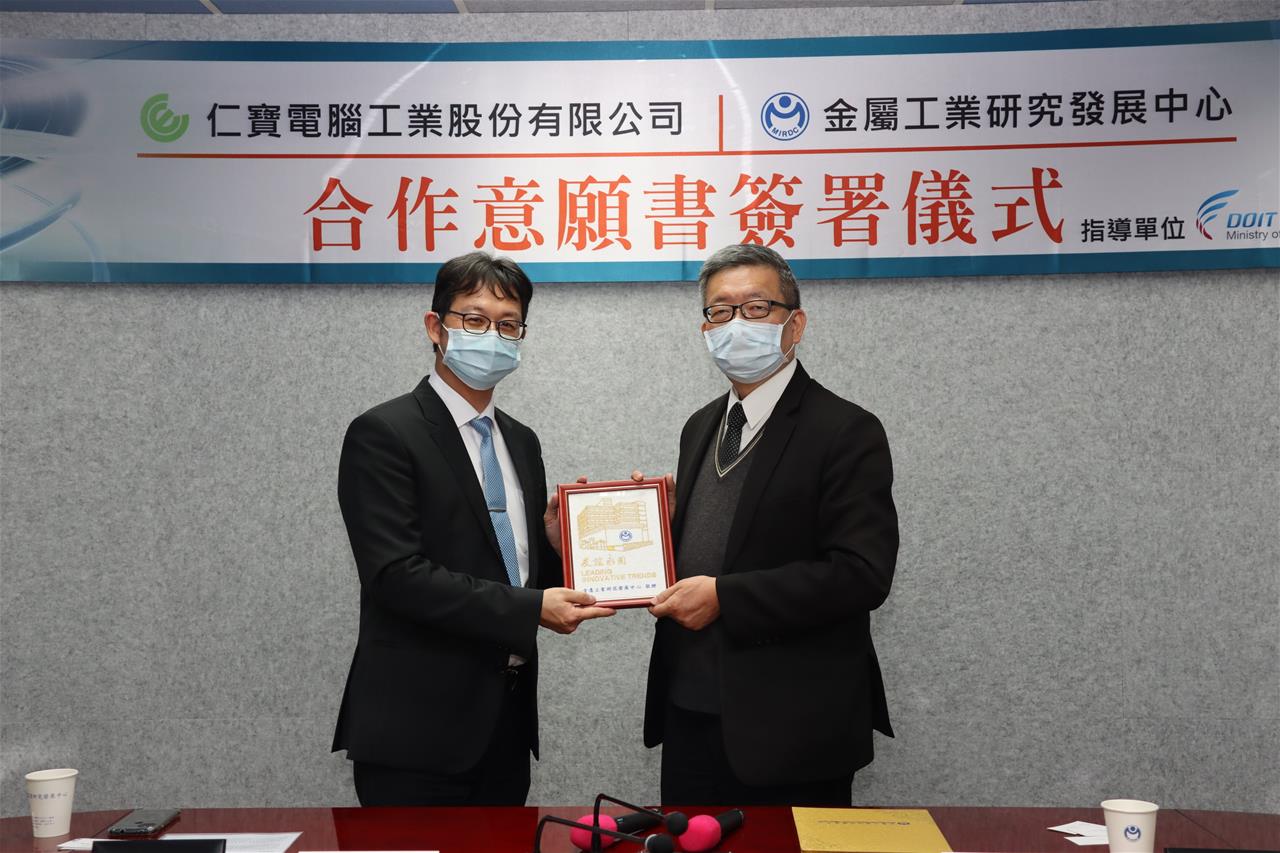
As we welcome the coming of the 5G era, glass and ceramic cases for 3C (computer, communications, and consumer electronics) products have flooded in the market, but fragility of glass and ceramic has caused durability problem, and electronic waste generated after product repair has imposed huge impact on the environment. Instead, metal matrix hybrid materials are receiving increasing attention in the industry for their lightweight and high-strength properties. With the support of the Department of Industrial Technology (DoIT), MOEA, Compal Electronics will partner with the Metal Industries Research & Development Centre (MIRDC) in the research and development of new materials for 5G laptop chassis. Focusing on 3C products and laptop, the project has a theme of “application of metal matrix hybrid materials to 3C product cases”. The two parties signed a memorandum of understanding for this brand-new mode of cooperation in MIRDC’s conference room on January 14, 2021.
Mr. Shung-Hung Lee, the vice president of Compal Electronics revealed that consumer electronics (e.g., notebook chassis) are not only trending towards lightweight in recent years, but consumers are also putting increasing emphasis on manufacturers’ environmental friendliness during the manufacturing process, their recycling efforts, etc. The major local manufacturers estimate that the cases of mobile phones and laptop chassis will develop towards high-end metal and hybrid materials in the future, so that products will become more shockproof, have such features as high strength and resilience, high heat dissipation, being recyclable, reusable, etc. The 5G era will bring huge changes to the communication technology framework. As countries rush to invest in technology development and innovative application, it is expected that the cooperation of Compal and MIRDC would augment the foundation that integrates 5G communication functions and recyclable hybrid materials, and help Taiwan pioneer in breaking through and innovating new technology.
As countries around the world are putting more and more emphasis on circular economy and environmental issues, the Electronic Product Environmental Assessment Tool (EPEAT) is also launched in different countries, said Dr. Chiu-Feng Lin, the president of MIRDC, causing notebook makers around the world to use less environment-sensitive materials and think twice in the product end-of-life design and choice of materials. That’s why Compal and MIRDC cooperate in the research and development of metal matrix hybrid materials and their applications in laptop chassis. These materials are expected to not only keep the glossy look of the products and sustainable features such as light weight and recyclability, but also create the unique competitiveness in the 5G trend.